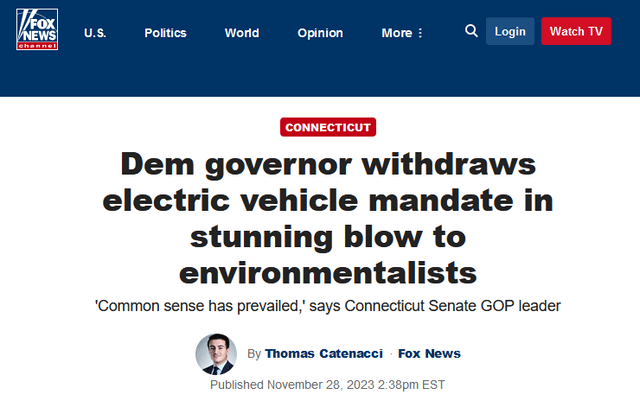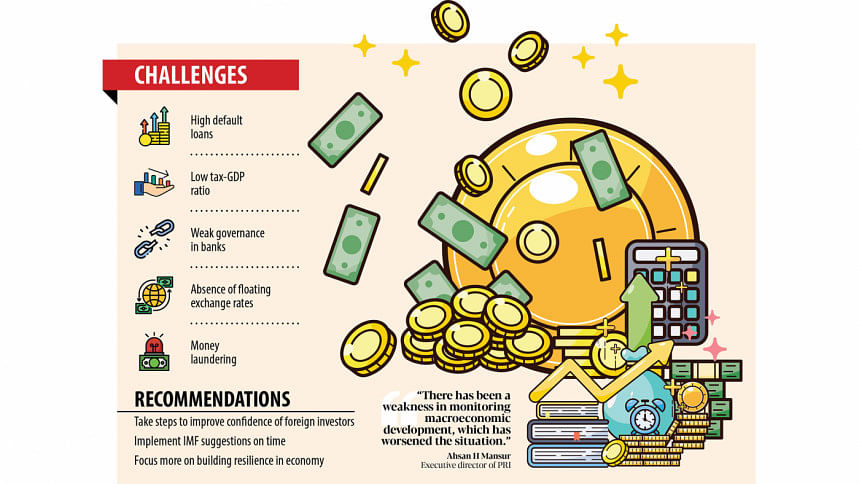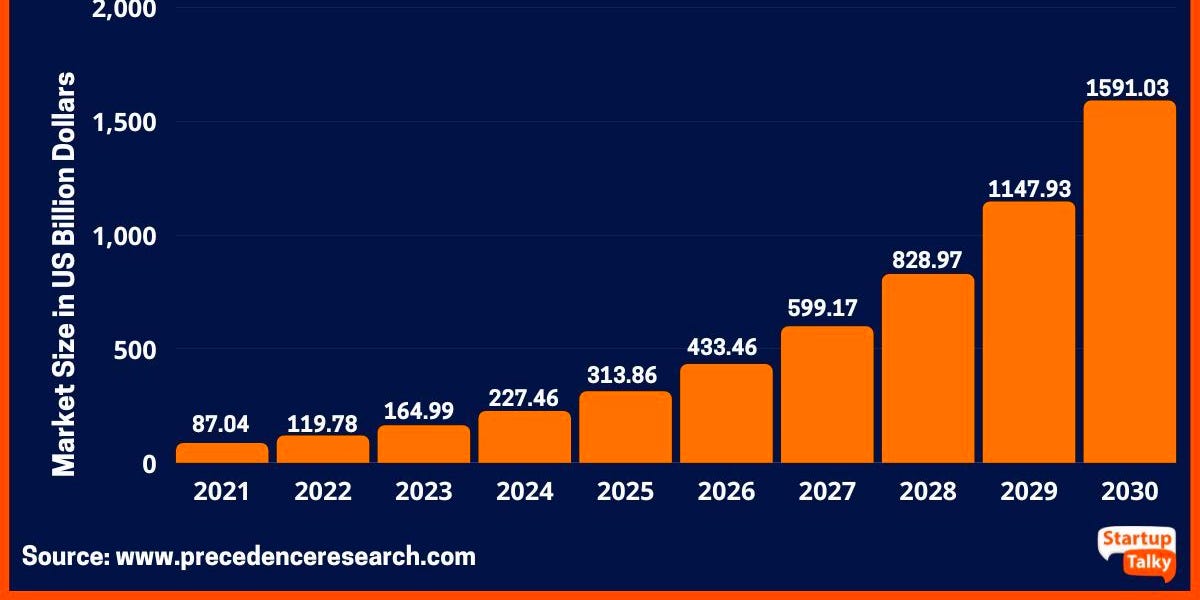Auto Dealers Double Down On Opposition To Electric Vehicle Regulations

Table of Contents
Financial Concerns and Profit Margins
The transition to electric vehicles presents a significant challenge to the traditional automotive dealership's profit model. Unlike gasoline-powered cars, EVs require far less frequent and extensive maintenance. This directly translates to lower service revenue for dealerships, a crucial component of their profitability. Furthermore, the parts sales associated with EVs are considerably less than their internal combustion engine (ICE) counterparts. The simple mechanics of an EV mean fewer parts are prone to failure, reducing the revenue stream from repairs and replacements.
- Lower service revenue: EVs have fewer moving parts and require less frequent maintenance, resulting in significantly reduced service revenue for dealerships.
- Higher initial investment: Dealerships must invest in specialized tools, equipment, and training to service EVs, representing a considerable upfront cost.
- Reduced parts sales: The simpler design of EVs leads to lower parts sales compared to gasoline vehicles.
- Impact on used EV valuation: The used EV market is still developing, creating uncertainty around trade-in values and impacting profitability.
This financial squeeze is further exacerbated by the need for dealerships to invest heavily in charging infrastructure to accommodate the increasing number of EVs. This investment, coupled with the reduced revenue streams discussed above, puts significant pressure on dealer profitability and underscores their opposition to regulations pushing faster EV adoption.
Disruption to Existing Business Models
The shift to EVs threatens to fundamentally alter the established business model of auto dealerships. The rise of direct-to-consumer sales models, adopted by some automakers, bypasses the traditional dealership network altogether, causing widespread anxiety amongst dealers. This direct sales approach eliminates the dealer's role in the sales process, reducing their influence and potentially cutting them out of the equation entirely.
- Reduced sales volume: Some dealers fear a reduction in overall sales volume as the market transitions to fewer EV models, especially in the early stages of adoption.
- Loss of sales process control: Direct-to-consumer sales models erode dealers' control over the sales process and customer relationships.
- Retraining needs: Sales staff require significant retraining to effectively sell and service EVs, demanding a substantial investment in employee education.
- Potential job losses: Decreased workload in service departments due to lower EV maintenance needs could result in job losses.
These concerns are legitimate and highlight the need for a strategic transition plan that supports dealerships throughout this major industry shift, rather than forcing rapid and disruptive change through aggressive regulation.
Lack of Infrastructure and Consumer Readiness
A significant hurdle to wider EV adoption is the lack of widespread charging infrastructure, a point consistently raised by those opposing stricter EV regulations. Range anxiety and charging time remain major concerns for potential EV buyers. The limited availability of public charging stations, especially in rural areas, further dampens consumer confidence and limits EV sales.
- Limited public charging: The scarcity of public charging stations, especially fast-charging stations, remains a significant barrier to consumer adoption.
- Range anxiety and charging times: Concerns about vehicle range and charging times continue to deter many potential EV buyers.
- Uncertainty about government incentives: Changes in government incentives and policies create uncertainty for both consumers and dealerships, impacting investment decisions and sales projections.
- Dealer investment in charging infrastructure: The considerable cost of installing and maintaining charging stations presents a significant financial burden for dealerships.
Until these infrastructural gaps are addressed, consumer readiness for EVs will remain limited, impacting dealer investment decisions and ultimately fueling their opposition to aggressive EV regulations.
Political Lobbying and Influence
Auto dealer associations are actively engaged in political lobbying efforts to influence EV regulations. They are leveraging their considerable financial resources and political connections to delay or weaken legislation that would accelerate the transition to electric vehicles. These efforts involve various strategies, including:
- Financial contributions: Significant financial contributions to political campaigns of candidates opposed to stringent EV regulations.
- Lobbying efforts: Intense lobbying efforts directed at legislators to delay or weaken proposed EV regulations.
- Public relations campaigns: Public relations campaigns designed to create a negative perception of EVs and their impact on consumers.
- Industry alliances: Collaboration with other industry groups opposed to stricter government regulation on environmental issues.
Their actions demonstrate a powerful vested interest in maintaining the status quo, significantly shaping the policy debate surrounding EV adoption.
The Future of Auto Dealers and Electric Vehicle Regulations
The opposition to electric vehicle regulations by auto dealers stems from a confluence of legitimate financial concerns, business model disruption, and infrastructure limitations. These concerns are significant and must be addressed to ensure a smooth and equitable transition to sustainable transportation. Continued resistance could severely impede the progress towards widespread EV adoption, delaying the environmental benefits and potentially harming the long-term viability of the auto industry itself. Staying informed about the ongoing debate surrounding electric vehicle regulations and the evolving role of auto dealers is crucial. We need solutions that support both the transition to sustainable transportation and the economic well-being of all stakeholders in the automotive industry. The future of the automotive industry hinges on finding a balance between environmental responsibility and economic viability, addressing the concerns of all parties involved in the opposition to electric vehicle regulations.

Featured Posts
-
 Boes Qe Strategy Smaller Scale Interventions For Future Economic Shocks
Apr 23, 2025
Boes Qe Strategy Smaller Scale Interventions For Future Economic Shocks
Apr 23, 2025 -
 Morning Retail Decryptage Du Systeme Nutriscore
Apr 23, 2025
Morning Retail Decryptage Du Systeme Nutriscore
Apr 23, 2025 -
 Creating Voice Assistants Made Easy Open Ais 2024 Announcement
Apr 23, 2025
Creating Voice Assistants Made Easy Open Ais 2024 Announcement
Apr 23, 2025 -
 14 Avril Revue De Presse Economique Du 18h Eco
Apr 23, 2025
14 Avril Revue De Presse Economique Du 18h Eco
Apr 23, 2025 -
 Brewers Record Setting Nine Stolen Bases Lead To Dominant Win Against As
Apr 23, 2025
Brewers Record Setting Nine Stolen Bases Lead To Dominant Win Against As
Apr 23, 2025
